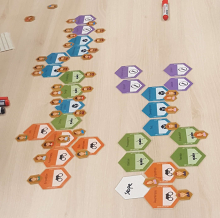
A new academic publication from the IRIS project, co-authored by Astrid C. Mangnus, Joost M. Vervoort, Willem-Jan Renger, Valentina Nakic, Karin T. Rebel, Peter P.J. Driessen, and Maarten Hajer.
Abstract: In the governance of urban sustainability transformations, participatory futures practices are increasingly popular. Yet there is a rising awareness that the success or failure of these practices depends on how they are staged and the context in which they are conducted. These contextual factors are often less than ideal, and futures practices take place at the crossroads of many pre-determined agendas and priorities. We distinguish four factors that shape the effects of participatory futures practices: 1) how the institutional landscape constrains or enables a project aimed at urban sustainability transformations; 2) the participatory culture surrounding the project; 3) the project design; and 4) the futures methods applied. We assess these factors in three cities within the European H2020 IRIS Smart Cities project. In each city, project members participated in sessions where they designed citizen engagement using a futures methodology: the novel Scope and Ladder models. Each city reflects a different combination of the four contextual factors. We find that space for exploration and re-imagining can be found and optimized under imperfect conditions. Drawing on the results of the three cases, we conclude with a set of recommendations for the funders, project members and futures organizers of urban sustainability transformation projects.
Keywords: Sustainability transformations; Space; Participation; Futures; Urban governance; Citizen engagement
Read/download the paper: https://doi.org/10.1016/j.cities.2021.103466
10 Oct 2021

